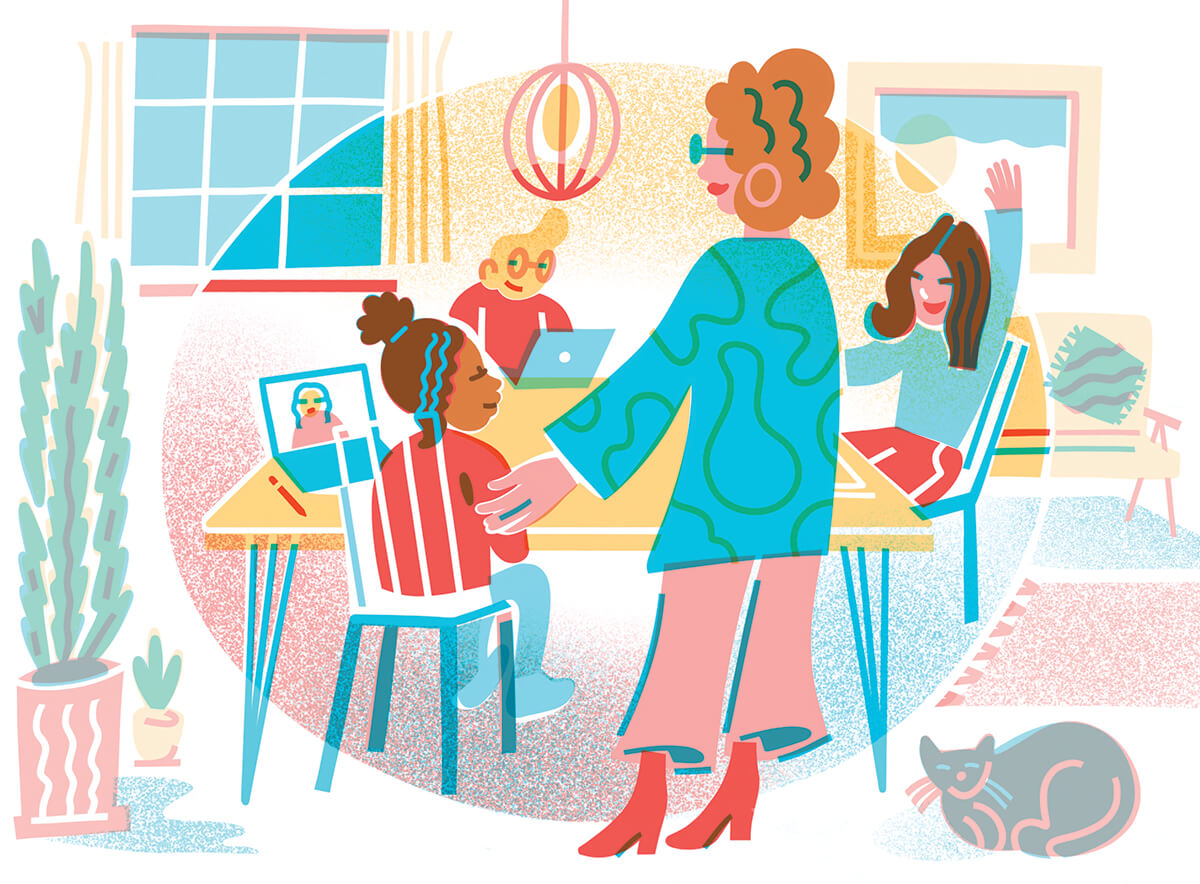COVID-19
In COVID Times, Local Parents Create Small Learning Environments
Multiple families have their kids learn together at home under the supervision of an ad hoc instructor.

Traci Kodeck spent spring wrangling her then-first-grader and working full-time as CEO of HealthCare Access Maryland. Both she and her partner, Robert Atlas, an obstetrician-gynecologist, work incredibly long hours, but the sudden homeschooling that began in March due to the arrival of the novel coronavirus fell mostly on Kodeck’s shoulders.
“I was working from home—whatever that means,” she laughs, which is to say spending much of her time reminding Zola to pay attention to class between work calls.
Zola’s school, Stoneleigh Elementary in Baltimore County, is distance learning for the foreseeable school year, which is also true for Baltimore City Public Schools. As of press time, most private schools planned for virtual and hybrid options. But as the future remains uncertain, working parents are still struggling with how to balance it all.
For that, many, including Kodeck, are turning to “pandemic pods,” where multiple families have their kids learn together at home under the supervision of an ad hoc instructor. Participants must agree to common rules, including things like COVID testing and transparency about outside activities. Some families have opted for outright homeschooling, but pods are largely seen as supplemental, allowing working parents a precious brief time-block where they don’t have to log kids into GoogleMeets, help with schoolwork, or get everyone outside for “recess.”
Kodeck and another family in her Towson neighborhood have hired a college student who chose to not return to art school this semester to oversee their learning pod, while Natalia Skolnik, mother of a kindergartner at Federal Hill Preparatory Elementary, is using parents as facilitators.
“We are lucky to know a family down the street with a like-aged kid where one parent is working at home with a flexible schedule and can help twice a week,” says Skolnik. Her husband works from home, but typically 14-hour-days.
A former teacher, Skolnik agrees with the prevailing narrative that pods will result in increased learning disparities along racial and class lines.
“It is only exacerbating the opportunity gap that has always existed due to the relationship between racist redlining and public education,” she says. “The ‘pods’ issue will lay bare what already is—if your family has enough money, your family can get all the access to anything they need or want in our country.”
Kodeck acknowledges this, too, as her nonprofit works to address equity in health care coverage. She understands that the choice of hiring help is one of privilege, but also believes in the times of COVID-19, you do whatever you can.
“I have to make the best decision for my child,” she says, admitting there’s no right answer. “This pod for us is the solution.”